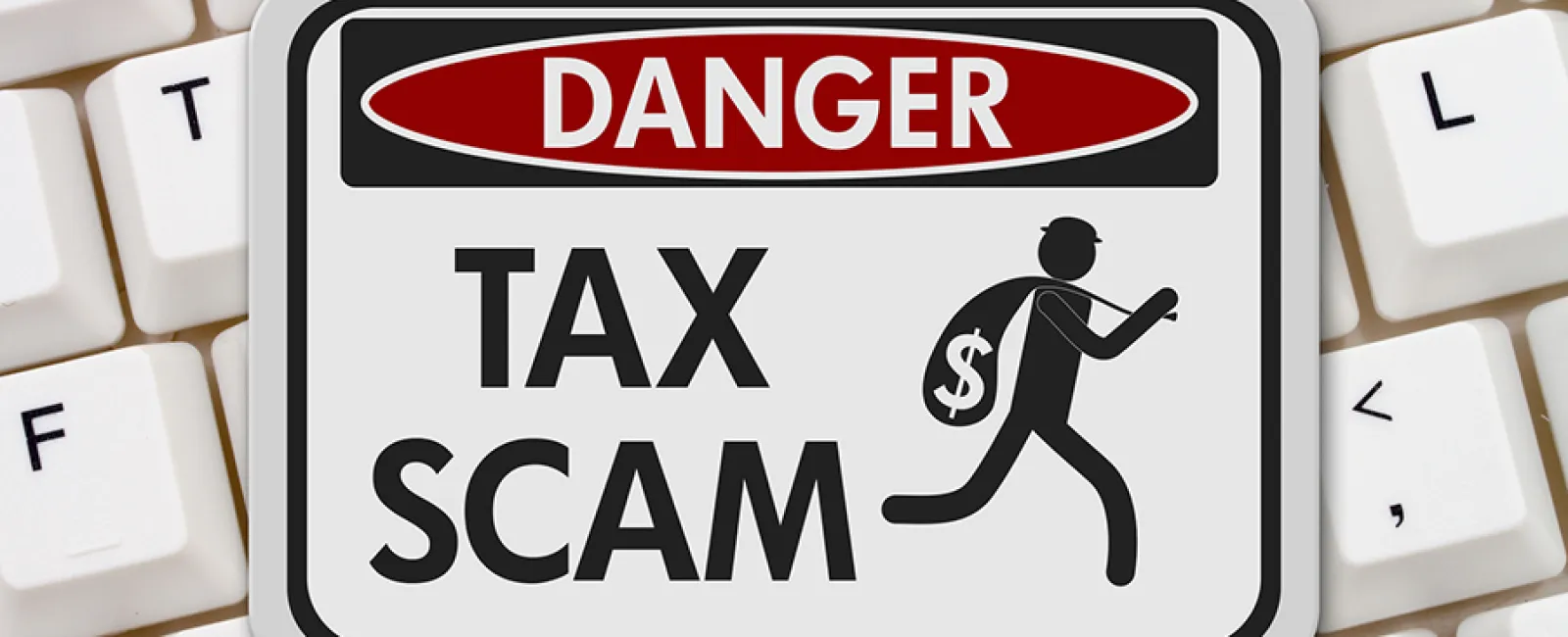February 04, 2024
With tax season approaching, so do the tax scams that threaten individuals and businesses. Each year, unsuspecting victims fall prey to these schemes, resulting in substantial financial losses and compromised personal data. In 2022 alone, taxpayers lost a staggering $5.7 billion to tax scams and fraud, as reported by the Better Business Bureau. In this article, we’ll outline the top tax scams that every business owner should watch out for, helping you stay vigilant and protect your finances and sensitive information.
The IRS’s Official Contact Methods
To safeguard against IRS scams, it’s crucial to understand how the IRS communicates with taxpayers. According to the IRS website, the IRS does not initiate contact via email, text messages, or social media for soliciting personal or financial information. The primary mode of communication is through physical mail, with phone calls being a secondary method. Even in phone calls, the IRS will not request personal or financial details and will never threaten or demand immediate payment. If you receive suspicious communication, refer to this article to verify its legitimacy.
Top Tax Scams to Watch Out For:
1. The Refund Scam:
• Taxpayers receive official-looking notifications claiming an “unclaimed refund” is available.
• These letters often include contact details and phone numbers not affiliated with the IRS.
• Be cautious of requests for sensitive personal information, such as detailed images of driver’s licenses.
• Verify the legitimacy of such communications before responding.

2. Identity Theft:
• Cybercriminals can file fake tax returns using stolen personal information, potentially receiving refunds.
• Apply for an Identity Protection PIN from the IRS to prevent tax ID theft.
• File taxes early to reduce the risk and promptly report any suspicious activity to the IRS.
3. The ERC Scam (Employee Retention Credit):
• Scammers misrepresent the eligibility and benefits of the ERC.
• Beware of promoters charging high fees based on the credit amount.
• Understand the official requirements of the ERC before claiming it.
4. The “Impact Payment” Scam:
• Emails claiming to be from the IRS regarding economic impact payments.
• Be wary of clicking on links or providing personal information.
• IRS does not contact taxpayers via email for these matters.

5. The “Additional Information Needed” Scam:
• Emails requesting tax forms directly from taxpayers.
• The IRS typically communicates such requests to companies, not individuals.
• Disregard suspicious emails and report fraud to the IRS.
6. Another Tax Agency Scam:
• Scammers impersonate legitimate or fictitious tax agencies via phone calls.
• Exercise caution and skepticism towards unsolicited calls.
• Obtain reference numbers and verify calls with official phone numbers.
Protecting Yourself:
• File Early: Reduce the window for scammers by filing taxes early.
• Vet Tax Preparers: Thoroughly vet tax preparers and avoid those promising excessive refunds without prior access to your information.
• Consider Fraud Protection: Explore fraud protection services for added security.
• Cybersecurity: Ensure your organization has a robust cybersecurity system to prevent scams and data breaches.
FREE Security Assessment:
As cybercriminals continue to evolve, protecting your organization is paramount. Consider a FREE third-party security assessment to identify vulnerabilities and create a plan for enhanced protection. Our experts will examine your network and provide insights to safeguard against scams.
Don’t let tax season become a breeding ground for scams. Stay vigilant, protect sensitive information, and fortify your defenses against cyber threats. Contact us for a FREE security assessment to secure your organization’s future at 973-828-0488.
